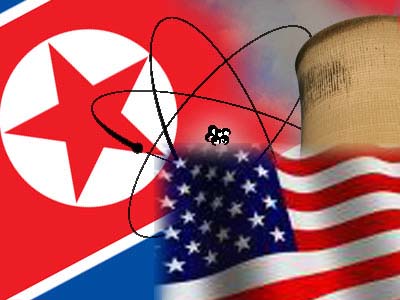
The Trump administration is displaying a firm stance in dealing with North Korea. Secretary of State Rex Tillerson, who recently visited Japan, Korea, and China, has stated that he is willing to launch a pre-emptive strike depending on the circumstances. This drastic change in policy would have a grave impact on Japan. I would like to see just how serious is he, and how far he is willing to negotiate.
“I think it’s important to recognize that the political and diplomatic efforts of the past 20 years to bring North Korea to the point of denuclearization have failed … In the face of this ever-escalating threat, it is clear that a different approach is required.” Tillerson emphasized this during his meeting with the Abe administration. In Korea, he responded to questions about the possibility of America using military force by saying that “all options are on the table.”
The Obama administration upheld a policy of “strategic patience,” only agreeing to engage in talks with North Korea if it abandoned nuclear development. America has now pivoted, applying pressure not only because of Trump’s personality, but because North Korea has made rapid progress in its military technology.
After a North Korean missile test, South Korea momentarily believed North Korea had fired intercontinental ballistic missiles. While South Korea soon realized its error, it appears that the technology is not far from becoming capable of reaching American soil. After witnessing these events on the other side of the world, America must eventually deal with them seriously.
The issue lies in China’s attitude, as China has considerable influence on North Korea. While Tillerson was visiting China, Trump was blaming North Korea for its lack of cooperation. Nevertheless, Tillerson invited Xi Jinping to visit America next month [in April], though specific details of the discussion are unknown.
In diplomatic dealings, it is important to strike a balance between dialogue and applying pressure. North Korea’s provocative conduct goes against the common sense of the global community, and America has now realized that this requires a change in approach. On the other hand, the U.S. must not engage in another reckless fight like the Iraq War.
I would like to see the Abe administration closely cooperate with and skillfully maintain a balance in its relationship with Korea, a relationship which has grown cold, in addition to maintaining its relations with America.
Japan must also remember to prepare for unforeseen circumstances. For example, in the unlikely event that war breaks out between America and North Korea, what will the Self-Defense Forces be able to do? What will they be unable to do? Japan and America must work on regulations so that public opinion is not divided on this issue.
This fall, the government will review the current National Defense Program Outline, which was drawn up in 2013. It is at times like these that we must carefully explain the Anpo,* a security treaty that encircles Japan, to the people.
*Editor’s note: Anpo is a Japanese term for the Treaty of Mutual Cooperation and Security between the United States and Japan, first signed in 1952, and amended in 1960; providing, among other things, for mutual defense obligations.

Leave a Reply
You must be logged in to post a comment.